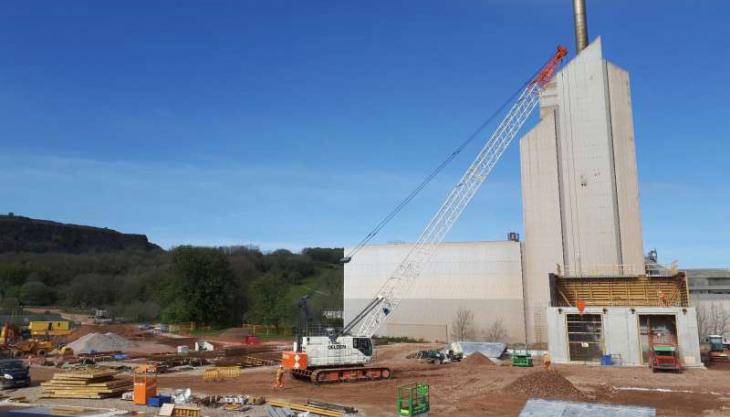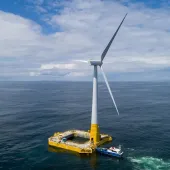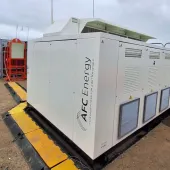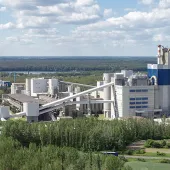Major CO2-reduction project at Cauldon

Cement plant breaks ground on £13 million project to reduce CO2 emissions by up to 30,000 tonnes annually
CONSTRUCTION has started on a £13 million project to reduce the carbon footprint of Lafarge Cement’s Cauldon cement plant, in Staffordshire.
This will be achieved by building a new pre-processing plant for the storage, handling and feeding of solid alternative fuels, that would otherwise end up as landfill. In addition, a new chloride bypass will be installed, which will ensure quality of product and result in no additional waste.
The world-class Cauldon operation, which was the first dry-process cement plant in the UK, is part of Aggregate Industries, who themselves are owned by LafargeHolcim – one of the world leaders in carbon-reduction initiatives, having recently committed to their net-zero climate pledge.
Steve Curley, managing director - cement, said: ‘We have a successful history at Cauldon of moving away from the traditional use of fossil fuels and instead utilizing renewable fuel sources.
‘This investment marks the next step forward for our sustainable future, allowing us to provide a circular economy by recycling waste supplied to us by reputable organizations that are approved against our strict specification standards, and then using it as fuel within our production process.’
After extensive consultation with the local community and other stakeholders, the project started construction in March 2021 and is due to complete in early 2022.
The project consists of two parts, the first being the new pre-processing facility with a haulage and feeding platform which will be constructed across the road from the main plant and connected via an innovative conveyor that fully contains the waste fuel during transfer to the plant. This facility will provide 100,000 tonnes of waste fuel per year to the main plant, utilizing materials that would otherwise go to landfill.
The second part of the project is the new chlorine bypass, which is being built into the existing kiln equipment in the main cement plant. The new bypass will remove any additional chlorine which may be present due to the use of the new fuel sources, ensuring a consistent high-quality product is still produced. The excess chlorine will be utilized at the end of the process, resulting in no additional waste materials.
The new chloride bypass and pre-processing facilities will reduce carbon dioxide emissions at the plant by 30,000 tonnes annually
Dragan Maksimovic, chief executive officer of Aggregate Industries UK, said: ‘It’s great to see us continuing to recognize the importance of sustainability and invest in Cauldon cement plant to ensure that we further reduce carbon emissions and remain sustainable for the long term, both as a local employer and contributor to the local economy, as well as a UK-wide supplier of high-quality products and services.’









